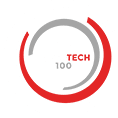How to Protect You and Your Family From Identity Theft in 2021

With the pandemic driving even more people to purchase on the internet, it comes as little surprise that online shoppers are increasingly targeted by malicious actors looking for easy prey. And with the US witnessing a two-fold increase in identity theft cases, cybercriminals are busier than ever with an ample supply of unwitting shoppers to victimize, both at home and connected via public wifi.
Fortunately, most of the tactics for preventing identity theft are grounded in common sense and may entail simply being mindful of your digital belongings. From maintaining proper cyber hygiene to spotting phishing attempts, the following are the most effective ways to protect yourself and your family against identity theft in 2021.
Create Strong Passwords to Prevent Identity Theft
Using a weak password (e.g, your child or relative’s name plus birth year) is not much better than having no password at all. For example, the password “Joe89!” can be brute forced by a cyber attacker immediately. A secure password is by nature complicated, so enlisting the help of a software-based password manager can help ease the burden of password memorization. 1Password, a password manager and vault app that we often recommend to our clients, does a great job of securely managing all of your various passwords and offers convenience, ease of use and flexibility for whichever device you are using (mobile or desktop). We also recommend LastPass.
Vet E-tailers to Prevent Identity Theft
Not all online shops are created equal. A nicely designed e-commerce site should also be paired with strong security. For example, if the website lacks SSL encryption, refrain from making purchases from the vendor. You can verify this by looking at the web store’s URL—if it starts with “http” instead of “https,” sensitive data going to and from the website such as customer credit card numbers can be easily readable to a would-be cybercriminal. Additionally, a quick Google search on the web store may yield some consumer red flags. Signs of a less-than-reputable vendor include an abundance of duplicate or short, positive reviews on popular ratings websites. Another red flag are only reviews posted within the past few months, potentially indicating this is a relatively new site.
Use VPN with Public Wifi to Prevent Identity Theft
When using public wifi to connect to the internet, ensure that the network you’re connected to is legitimate. A common tactic in the cyber criminal’s playbook is setting up a free wireless access point for random users to connect to in order for data theft to occur. Even if the public wifi in question is deemed safe, you will still want to use a virtual private network (VPN) to provide an additional encryption layer for added security. An alternative to connecting to the public wifi and not using a VPN, would be to spin up a hotspot on your mobile device and use your cellular provider’s secure network instead.
Protect Your Social Security Number
Social security numbers are considered high value targets for cybercriminals, and for good reason: accompanied by a few other more publicly accessible pieces of personal data, a social security number can allow a cybercriminal to open a bank account or new line of credit in the victim’s name. If a business or individual requests your social security, ask why it is required and how it is protected. In many cases the requestor will be able to accept an alternative form of identification (e.g., driver’s license number, student identification) or you may even find out that the SSN isn’t really needed at all and you don’t have to provide further information.
Consider Placing a Credit Freeze
Placing a credit freeze with each of the three credit reporting agencies, prevents most lenders from being able to pull your credit history, which, in turn, prevents cybercriminals from opening new accounts. However, that also means that you can’t open a new account unless you unfreeze your credit. Refer to our blog Why & When to Use a Credit Freeze and/or Fraud Alert for more information.

Actively Monitor Your Credit Report
Last but not least, especially if you’re not keen on freezing your credit, keeping constant tabs on your credit report will allow you to spot personal credit report anomalies quickly. Potential signs of identity theft may appear as unfamiliar credit inquiries on record or credit lines opened and immediately closed. Keeping a watchful eye out for indicators of compromise will enable you to act quickly in spotting the malicious actor and taking damage control measures.
Remove Your Information From Data Brokers
Many cybercriminals will leverage the information they find on data broker sites, such as name, age, email, phone, addresses, etc. to help with their efforts to conduct identity theft. We recommend you request your information be removed from these sites to increase your privacy footprint and limit the information cybercriminals can collect on you. Refer to our blog Data Brokers – Limit Your Exposure, for more information.
In short, identity theft is the most common fraud type reported by consumers in the US, but the statistics don’t have to include you and your family. Staying vigilant and diligent will go a long way towards protecting your identity online and minimizing collateral damage if fraud does occur.
That said, your efforts shouldn’t stop there—a regimen of personal cyber hygiene coupled with a holistic cybersecurity and privacy program is key to maintaining continuous, sustainable resilience. If you’re an individual with extended concerns about preserving your financial or reputational status, contact us to learn more about how we can make your online experience safe from cybercriminals.









